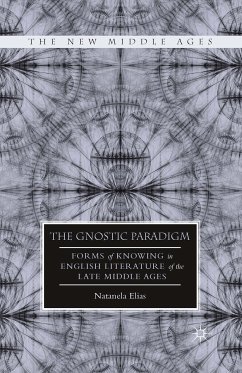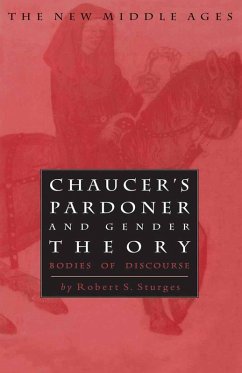
The Medieval Fold (eBook, PDF)
Power, Repression, and the Emergence of the Individual
Versandkostenfrei!
Sofort per Download lieferbar
40,95 €
inkl. MwSt.
Weitere Ausgaben:

PAYBACK Punkte
20 °P sammeln!
Striking cultural developments took place in the twelfth century which led to what historians have termed 'the emergence of the individual.' The Medieval Fold demonstrates how cultural developments typically associated with this twelfth-century renaissance autobiography, lyric, courtly love, romance can be traced to the Church's cultivation of individualism. However, subjects did not submit to pastoral power passively, they constructed fantasies and behaviors, redeploying or 'folding' it to create new forms of life and culture. Incorporating the work of Nietzsche, Foucault, Lacan, and Deleuze,...
Striking cultural developments took place in the twelfth century which led to what historians have termed 'the emergence of the individual.' The Medieval Fold demonstrates how cultural developments typically associated with this twelfth-century renaissance autobiography, lyric, courtly love, romance can be traced to the Church's cultivation of individualism. However, subjects did not submit to pastoral power passively, they constructed fantasies and behaviors, redeploying or 'folding' it to create new forms of life and culture. Incorporating the work of Nietzsche, Foucault, Lacan, and Deleuze, Suzanne Verderber presents a model of the subject in which the opposition between interior self and external world is dislodged.
Dieser Download kann aus rechtlichen Gründen nur mit Rechnungsadresse in A, B, BG, CY, CZ, D, DK, EW, E, FIN, F, GR, HR, H, IRL, I, LT, L, LR, M, NL, PL, P, R, S, SLO, SK ausgeliefert werden.












